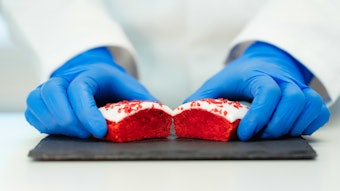
Solvay S.A. has announced a commercial process for synthetic eugenol, a derivative of phenol, whose natural version is extracted from clove oil obtained from dried flower buds of clove trees grown in Indonesia and Madagascar.
Previously: Solvay Launches Eugenol Synth
Synthetic eugenol offers a cost-effective alternative supply of the compound for applications that do not specifically require natural origins, and also offers protection from price volatility of natural clove oil for fragrance formulators.
The resulting process begins with phenol, which is converted into catechol, and then into the intermediate guaiacol. These applications include using guaiacol as an intermediate in the production of the flavor molecule vanillin and the cough suppressant guaifenesin, as well as the main raw material for the production of eugenol.
"The synthetic eugenol process features a carefully designed distillation stage to separate the desired end-product (para-eugenol) from the various co-products and byproducts with similar boiling points that result from the reaction of guaiacol to eugenol," Corinne Duffy, the eugenol project manager at Solvay Aroma Performance, explains.
"Synthetic eugenol is now available to the fragrance market," Duffy says. "But in the near future, the product could be incorporated into oral care products (toothpaste and mouthwash) for its antiseptic properties, once the company secures the necessary certifications."
Want to know everything going on in flavor & fragrance? Sign up for P&F+'s newsletter. You can also follow along on Instagram and LinkedIn.










